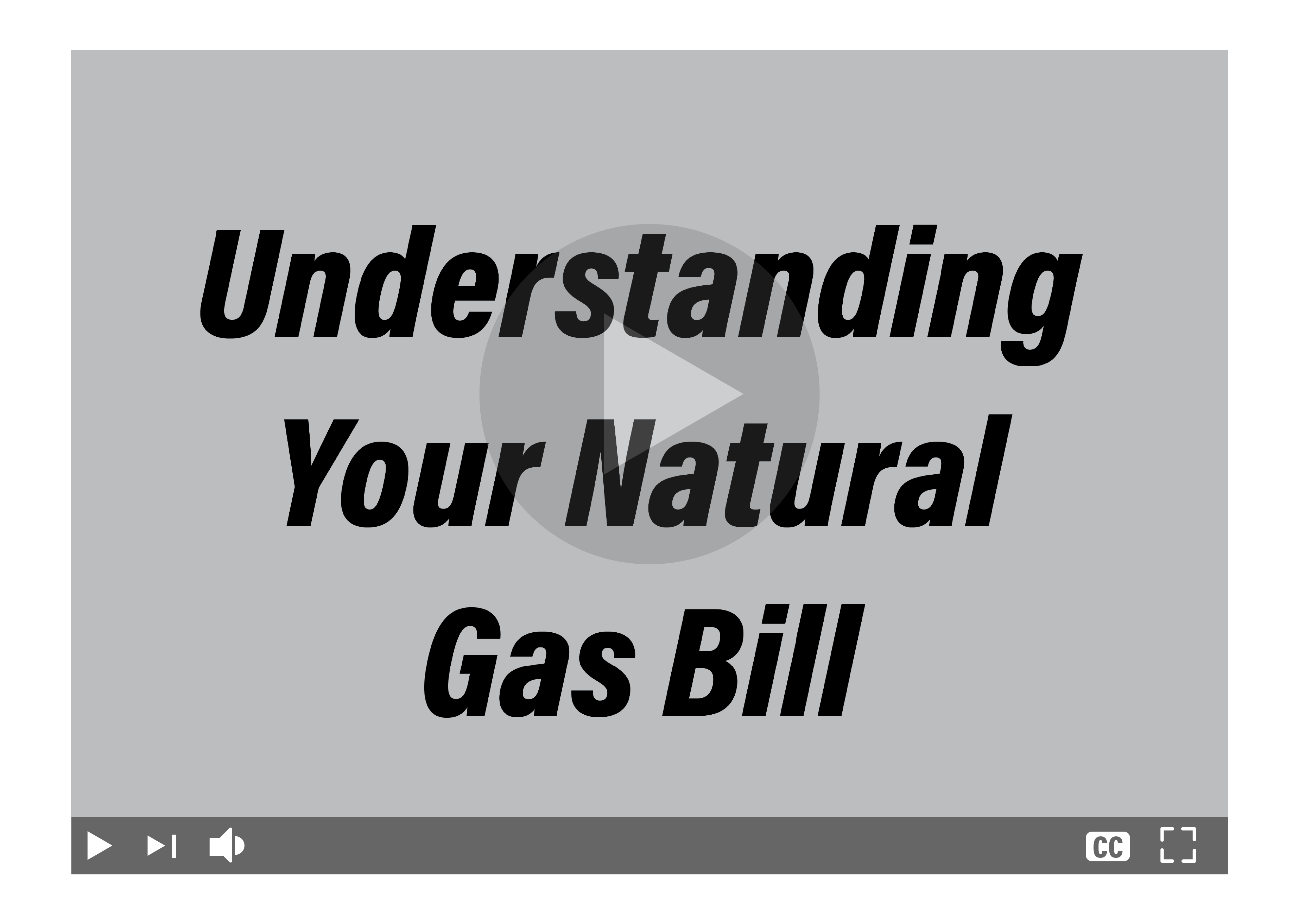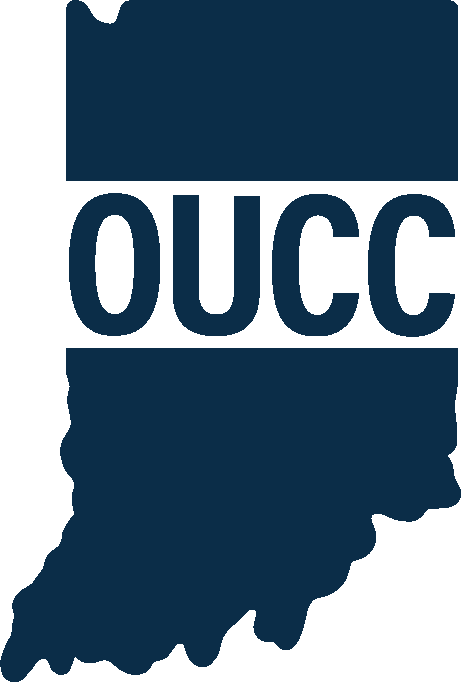
Quick Facts:
- Wholesale natural gas prices are determined by the competitive national market. They have gone through periods of stability and periods of volatility over the years.
- Monthly gas utility bills reflect the price of gas and the customer’s usage.
- Budget billing and energy efficiency can help you manage large winter utility bills.
- Natural Gas Prices: The Basics
Natural gas utilities buy wholesale gas for their customers in a competitive national market, and may purchase gas from a number of competing businesses as federal law allows. Natural gas wholesale prices rise and fall based on supply and demand, along with other market dynamics.
Utilities recover wholesale costs on a dollar-for-dollar basis. They are allowed to earn returns on "non-gas" costs such as infrastructure upgrades, operations, and maintenance.
All rate recovery requires OUCC review and IURC approval in docketed cases.
- What determines my monthly bill?
The amount of your gas bill depends mostly on the amount of gas you use and the cost of delivering it to you.
Usage – Driven mostly by weather
Most residential and small business natural gas consumers use gas primarily for space heating. As a result, gas bills generally peak in the winter and reach their lowest levels in summer.
Changes in cost – Natural gas service consists of 3 components:
- Supply
- Transportation
- Distribution
Supply Costs:
- Cover the gas itself, which has traditionally made up more than half of an average customer’s winter heating bill.
- Are largely determined by the law of supply and demand.
- Fluctuate more than transportation and distribution costs.
- Can be passed through to customers on a dollar-for-dollar basis in compliance with Indiana law:
- Utilities must shop prudently in the competitive wholesale market and mitigate customer exposure to market volatility.
- Utilities may not profit on supply costs.
- Costs must receive Indiana Utility Regulatory Commission (IURC) approval and Indiana Office of Utility Consumer Counselor (OUCC) review before being passed through. These reviews are done regularly through the state’s Gas Cost Adjustment (GCA) process.
- Portions of proposed pass-throughs can be disallowed if legal obligations are not met.
- The OUCC’s Gas Cost Adjustments fact sheet offers more information.
Transportation Costs:
- Cover the charges of transporting gas from wellheads (typically in the Gulf of Mexico, the western United States, or Canada) or shale sources (throughout the United States) to your local utility via interstate pipelines.
- Are under Federal Energy Regulatory Commission (FERC) jurisdiction.
Distribution Costs:
- Pay for delivery of gas to homes and businesses within your utility’s service area.
- Are generally recovered through a utility’s base rates.
- Are under IURC regulation because gas utilities have monopolies in their geographic service areas.
- Can only be changed through a formal legal process involving the utility, the OUCC and other parties that may intervene.
- Managing Bills: Energy Efficiency
See the OUCC’s “Reduce Your Winter Energy Bills” fact sheet for tips on saving energy. The fact sheet is available on the agency’s Website or by calling the OUCC’s consumer services staff at 1-888-441-2494.
Your utility may offer energy efficiency programs including home energy audits and/or product rebates.
Adding insulation, using a programmable thermostat and making other energy investments in your home will help pay for themselves by saving money on your utility bills.
You can also receive more detailed information on energy efficiency from the U.S. Department of Energy and the Alliance to Save Energy.
- Managing Bills: Budget Billing
The OUCC encourages consumers to participate in budget billing, which can reduce very high winter bills and provide billing consistency from month to month.
Most natural gas and electric utilities in Indiana offer budget billing (also known as “balanced” or “levelized” payment plans), which moves a portion of the consumer’s winter payments to non-heating months when gas bills are typically lower. Programs may differ slightly but follow six basic steps:
- Your gas usage and costs are estimated for a set period, typically a year.
- This estimate is then divided by the number of months in the budget period.
- You pay this set amount for gas service for each month of the budget period.
- Depending on market conditions, utilities may make a mid-term adjustment to your budget billing amount to help mitigate any future charges for underpayment.
- At the end of the budget period, the utility calculates the difference between the actual cost of your gas service and the amount that you paid under the budget program.
- You are then either credited for any overpayment or charged for any underpayment over a set period. If you have underpaid, that amount will usually be factored into the next budget period and collected gradually.
Northern Indiana Public Service Company (NIPSCO) gas customers have additional options under the utility’s alternative regulatory plans. Consumers who consider these options should do so carefully and should review the OUCC consumer publications on these subjects. All OUCC publications are available on the agency’s Website or by calling the OUCC’s consumer services staff toll-free.
- Payment Plans
If you receive a bill that you may have difficulty paying, contact your utility immediately. Utilities are generally required to work with customers to prevent the expense and time involved in disconnection. However, a consumer must:
1. Contact the utility as quickly as possible,
2. Follow through on any agreed payment arrangement, and
3. Immediately contact the utility regarding any changes that could affect the arrangement. - Financial Assistance
Households with qualifying incomes can receive heating season benefits from the state’s Energy Assistance Program.
EAP offices in each county distribute funds on a first come, first served basis. Consumers can find their local offices and get more information on these agencies through the Indiana Housing & Community Development Authority's (IHCDA's) interactive map or by calling 1-800-382-9895 toll-free.
Consumers who need financial assistance are also encouraged to contact Indiana 2-1-1. Many utilities offer their own energy assistance programs. Local township trustees can also be a source of assistance.
- Disconnection
A consumer who is receiving state Energy Assistance Program funds may not have his or her gas or electric utility service disconnected between December 1 and March 15, under Indiana law.
The OUCC’s Utility Service Disconnection & Winter Disconnection Moratorium fact sheets offer more information on customer rights and responsibilities.
